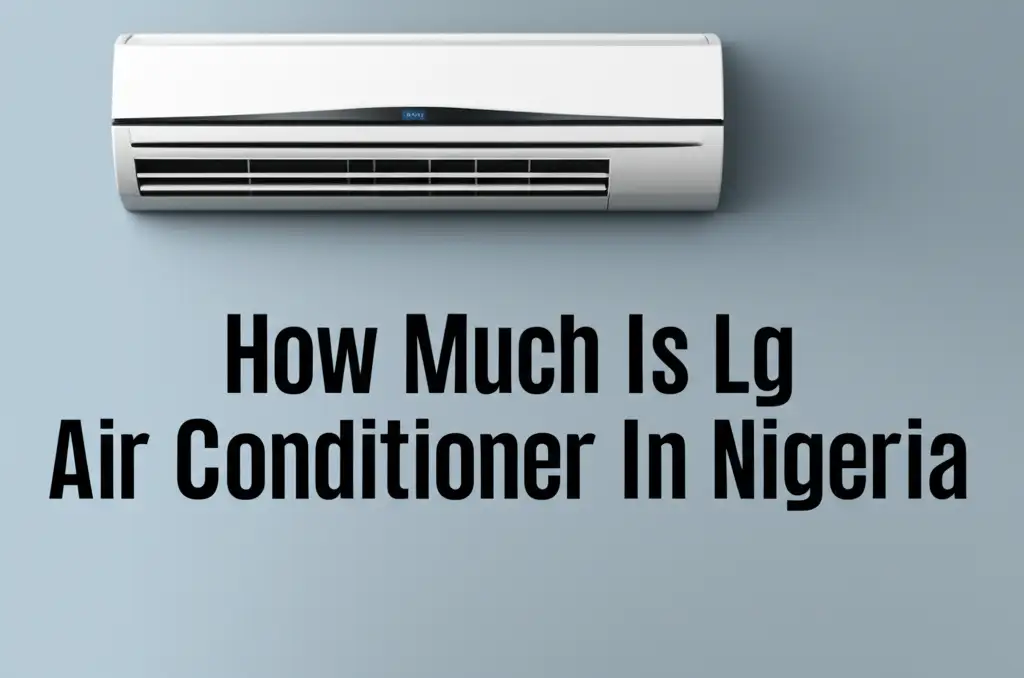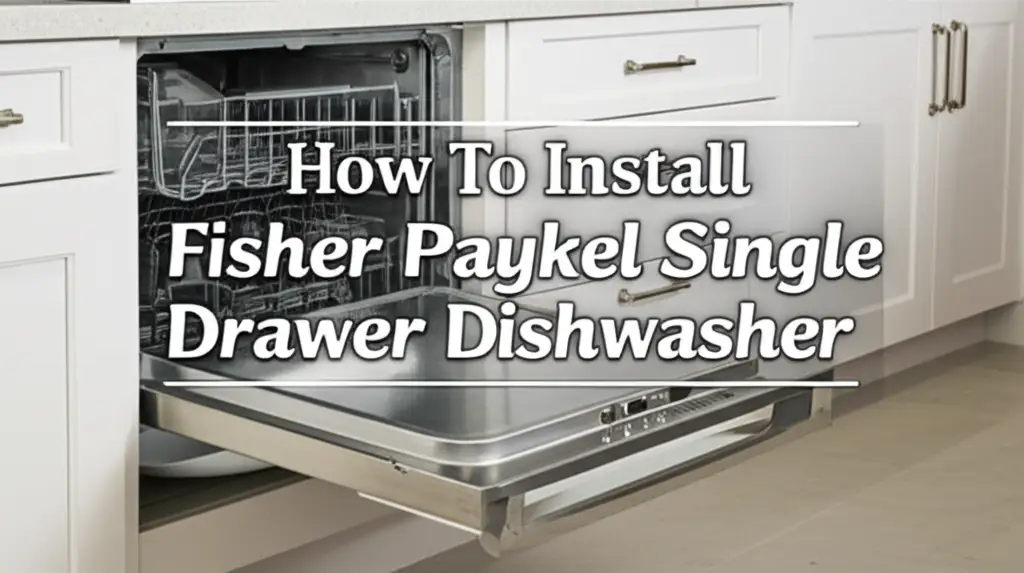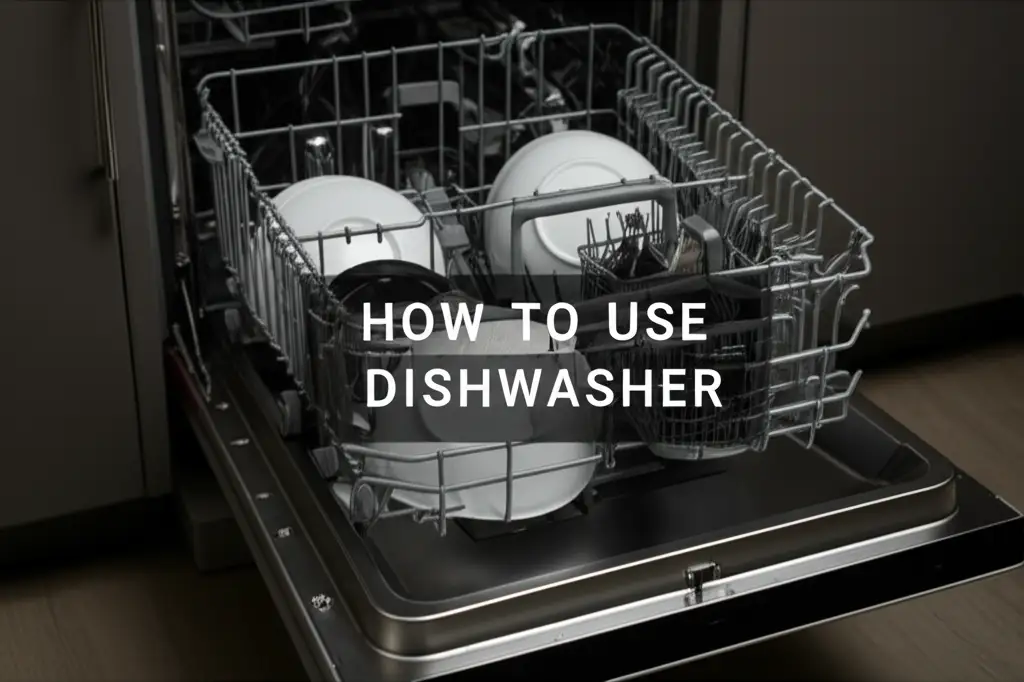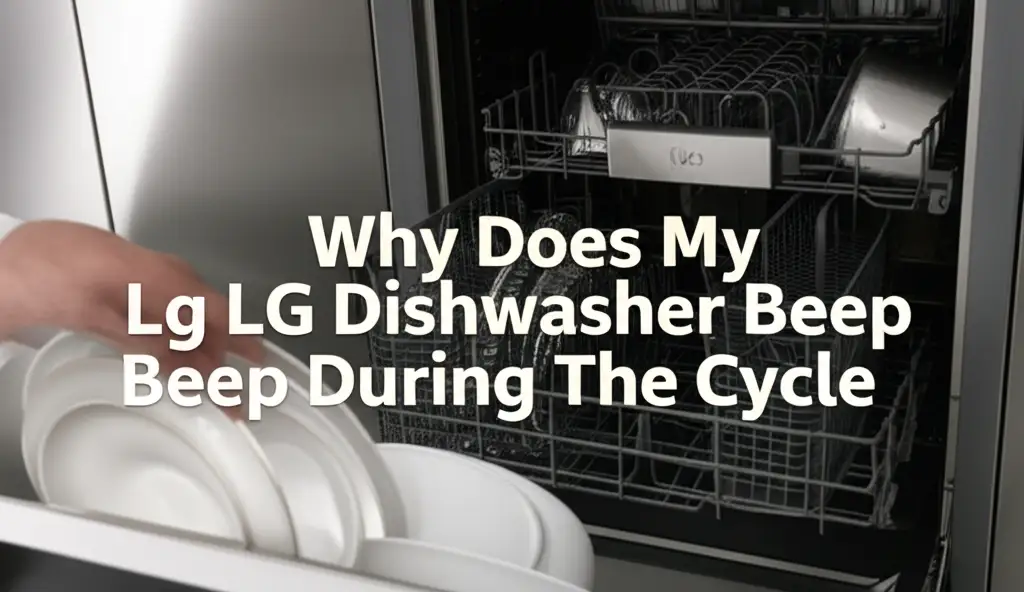· Katria Melrose · Home Appliances · 18 min read
How Much Is Split Air Conditioner In Nigeria
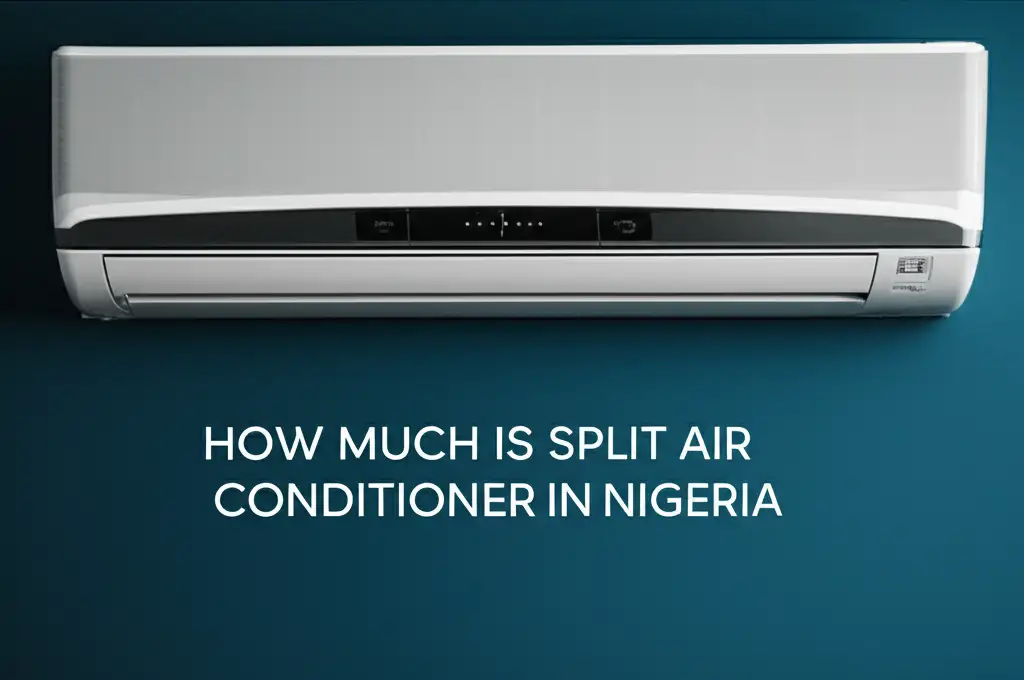
How Much Is Split Air Conditioner In Nigeria
Imagine stepping into your home after a long day under the Nigerian sun. A blast of cool air instantly greets you, turning your living space into a refreshing oasis. This is the dream many Nigerians have, and a split air conditioner makes it real. If you are considering buying one, you are likely wondering about the cost.
Understanding the price of a split air conditioner in Nigeria involves more than just the unit itself. Many factors impact the final amount you pay. This guide helps you navigate these costs. We will cover unit prices, installation fees, and other hidden expenses. My goal is to give you a clear picture of what to expect.
Takeaway
- Unit Price Varies: Split AC prices range from ₦180,000 to ₦700,000+ based on capacity (1HP-3HP), brand, and features like inverter technology.
- Installation is Separate: Expect to pay ₦25,000 to ₦60,000 for professional installation services.
- Consider Running Costs: Inverter ACs save significant money on electricity bills over time, despite a higher upfront cost.
- Choose Wisely: Match the AC capacity to your room size for efficient cooling and to avoid wasted energy.
- Factor in Maintenance: Regular cleaning and servicing prolong your AC’s life and ensure optimal performance.
A Quick Answer to Your Query
The price of a split air conditioner in Nigeria generally ranges from ₦180,000 to ₦700,000 or more. This depends on the brand, capacity (1HP to 3HP), and whether it features inverter technology. Installation costs are typically separate, adding another ₦25,000 to ₦60,000 to your total expense.
Understanding Split Air Conditioner Costs in Nigeria
Buying a split air conditioner is a significant investment for any household or business in Nigeria. The hot climate makes an AC a necessity, not a luxury, for many. Prices can vary greatly, and it is important to know why. Several core elements affect the cost you will encounter.
The unit’s cooling capacity is a major factor. This capacity is measured in Horsepower (HP) or British Thermal Units (BTU). A larger room needs a higher capacity AC unit. Higher capacity means a higher price. For example, a 2HP unit costs more than a 1HP unit.
Brand reputation also plays a big role. Well-known international brands often cost more than local or lesser-known ones. These brands often offer better warranties and after-sales support. I consider this a valuable addition to the purchase. Features like inverter technology, smart controls, and air purification also add to the price. Inverter ACs are more expensive upfront but save money on electricity bills.
Capacity (BTU/Ton): The cooling power of an AC unit is crucial. Rooms vary in size, so you need the right AC. Using an undersized AC for a large room will not cool effectively. An oversized AC wastes energy and money.
- 1 Horsepower (HP) or 9,000 BTU: Suitable for small rooms (up to 10 square meters).
- 1.5 HP or 12,000 BTU: Good for medium-sized rooms (10-18 square meters).
- 2 HP or 18,000 BTU: Ideal for larger rooms or open-plan areas (18-25 square meters).
- 2.5 HP to 3 HP (24,000 BTU to 36,000 BTU): Best for very large spaces, halls, or commercial settings. Remember, higher capacity means higher cost. I always advise people to measure their room before buying.
Brand Reputation: Different brands have different price points. Premium brands like Daikin and LG often command higher prices. Mid-range brands like Hisense and Scanfrost offer good value. Their products are often reliable and come with decent warranties. Local brands might be cheaper but check their service network.
- Premium Brands: Daikin, LG, Samsung. These brands offer advanced features and strong reliability.
- Mid-Range Brands: Hisense, Midea, Haier. They provide a good balance of features and cost.
- Budget-Friendly Brands: Scanfrost, Thermocool. These are often more accessible for budget-conscious buyers. I have seen many people happy with these brands for basic cooling needs.
Inverter vs. Non-Inverter: This is a key decision point. Non-inverter ACs operate at a fixed speed, turning on and off to maintain temperature. Inverter ACs adjust their compressor speed. This leads to much lower power consumption.
- Non-Inverter ACs: Cheaper to buy initially. They consume more electricity over time.
- Inverter ACs: Higher upfront cost. They save a lot of money on electricity bills. They also offer quieter operation and more consistent cooling. For me, the long-term savings often make inverter ACs a better choice.
Features: Modern split ACs come with various features. These can include Wi-Fi connectivity, air purification filters, auto-restart functions, and sleep modes. Each added feature can increase the unit’s price. Think about what features you truly need. Some features are convenient, but others might not be worth the extra cost for your specific use.
Typical Price Ranges for Different AC Capacities
When you are looking to buy a split air conditioner in Nigeria, the first thing you will notice is the range in prices. This range mainly comes from the unit’s cooling capacity. Different room sizes need different AC sizes to cool effectively. I have seen many people make the mistake of buying an undersized AC, leading to poor cooling.
The prices I list are estimates. They can change due to market demand, dollar exchange rates, and specific vendor promotions. Always check with multiple retailers before making your final decision. The current economic situation in Nigeria can also impact prices frequently.
1 Horsepower (HP) Split AC Price:
- A 1HP split AC is perfect for small bedrooms or compact offices. Its cooling power handles spaces up to approximately 10 square meters efficiently. This capacity uses less energy, which helps with electricity bills. It is the most affordable option.
- Non-Inverter 1HP: You can expect to pay between ₦180,000 to ₦280,000.
- Inverter 1HP: These units typically cost between ₦250,000 to ₦350,000.
- I often recommend a 1HP unit for a child’s bedroom or a small study.
1.5 HP Split AC Price:
- The 1.5HP split AC is a popular choice for average-sized living rooms or master bedrooms. It cools spaces between 10 and 18 square meters very well. This size balances cooling power with energy use for most homes. Many Nigerian households find this size perfect.
- Non-Inverter 1.5HP: Prices usually range from ₦250,000 to ₦380,000.
- Inverter 1.5HP: These units generally cost between ₦350,000 to ₦500,000.
- This is the size I usually see in most family homes.
2 HP and Above Split AC Price:
- For larger living areas, open-plan spaces, or multiple interconnected rooms, a 2HP or higher capacity AC is necessary. These units handle spaces larger than 18 square meters, up to 30 square meters or more. They provide strong, consistent cooling for bigger areas. Businesses often use these larger units.
- Non-Inverter 2HP: Expect to pay ₦350,000 to ₦500,000.
- Inverter 2HP: These units typically fall in the range of ₦480,000 to ₦700,000.
- 2.5 HP to 3 HP: For even larger spaces, prices can exceed ₦700,000 to ₦1,000,000+, especially for inverter models from premium brands.
- Always ensure you buy the correct capacity to avoid overspending or under-cooling.
Factors Influencing Split AC Prices Beyond the Unit Cost
Buying a split air conditioner unit is only part of the total cost. Several other factors significantly add to your overall expense. It is important to consider these elements to budget accurately. I have seen many people forget about these extra costs, leading to surprises later.
Installation is a primary additional cost. A professional installer ensures your AC works correctly and efficiently. Poor installation can lead to problems like gas leakage or poor cooling. This means more money spent on repairs. Furthermore, understanding the warranty and considering future maintenance are crucial for long-term satisfaction.
Installation Costs:
- After buying the AC unit, you need to install it. This involves mounting the indoor unit, outdoor unit, connecting copper pipes, electrical wiring, and vacuuming the lines. Installation prices vary based on the AC’s capacity and the complexity of the job. For example, a multi-story building installation might cost more.
- Average Installation Fee: Expect to pay between ₦25,000 to ₦60,000 for standard installation.
- What Affects Cost: Factors include distance from outdoor unit, need for extra piping, scaffolding, and location (city vs. rural).
- I always recommend hiring certified technicians. Proper installation makes your AC last longer and perform better. For tips on setting up, you can learn how to install ductless single zone mini split air conditioner or how to install Senville Leto series mini split air conditioner. These resources help you understand the process.
Warranty and After-Sales Service:
- A good warranty protects your investment. Most reputable brands offer a 1-year warranty on the entire unit and longer on the compressor (sometimes 5-10 years). Check what the warranty covers before buying. Some warranties cover parts only, others include labor.
- Importance: A strong after-sales service network ensures you get support if your AC develops a fault. Brands with service centers across Nigeria are more reliable.
- I find peace of mind knowing that if something goes wrong, I can get it fixed without huge extra costs.
Maintenance and Running Costs:
- An AC needs regular cleaning and servicing to run well. Filters get dirty, coils collect dust, and drain pipes can clog. Ignoring maintenance leads to lower efficiency, higher electricity bills, and potential breakdowns.
- Cleaning: You should clean your AC filters every few weeks. This is a simple task you can do yourself. Learn how to clean air conditioner filter for a step-by-step guide.
- Professional Servicing: A professional technician should service your AC at least once a year. This involves deep cleaning, checking refrigerant levels, and inspecting electrical components. Expect to pay ₦10,000 to ₦25,000 for a thorough service.
- Electricity Consumption: This is the largest running cost. Inverter ACs are much more energy-efficient than non-inverter ones. They can save you up to 30-50% on electricity bills. This saving can offset the higher initial cost of an inverter unit over time. Regular cleaning helps reduce power consumption. You can also explore how to clean split AC unit and how to clean air conditioner coils for more specific cleaning tasks. Keeping your AC clean ensures it runs at peak efficiency.
Popular Split AC Brands and Their Pricing Tiers in Nigeria
Nigeria’s market offers a wide range of split air conditioner brands. These brands cater to different budgets and preferences. Knowing the popular brands and their typical pricing tiers helps you make an informed decision. I have observed these brands dominate the market.
Each brand has its strengths, from cutting-edge technology to basic, reliable cooling. Your choice depends on your specific needs, budget, and how much you value features versus pure affordability. Always consider the brand’s presence and service network in Nigeria.
Premium Brands:
- These brands offer advanced technology, superior energy efficiency (especially inverter models), and often longer warranties. They are known for durability and quieter operation. Examples include Daikin, LG, and Samsung.
- Price Range: Expect to pay ₦400,000 to ₦1,000,000+ for units from these brands, depending on capacity and features.
- Daikin is often considered a top-tier choice for its efficiency and reliability. LG and Samsung offer smart features and sleek designs. I personally appreciate the innovation these brands bring to home cooling.
Mid-Range Brands:
- Mid-range brands offer a good balance between cost and features. They provide reliable cooling, decent energy efficiency, and a good warranty. These brands are often a popular choice for many Nigerian homes. Examples include Hisense, Midea, and Haier.
- Price Range: Units from these brands typically cost ₦280,000 to ₦600,000.
- Hisense is very popular in Nigeria for its value. Midea is also gaining ground with a wide range of products. Haier offers dependable options. These brands give you quality without breaking the bank.
Budget-Friendly Brands:
- These brands focus on affordability and basic cooling functions. They are ideal if you have a tight budget but still need effective cooling. While they might lack some advanced features or top-tier efficiency, they get the job done. Examples include Scanfrost and Thermocool.
- Price Range: You can find units from these brands for ₦180,000 to ₦400,000.
- Scanfrost and Thermocool are common household names in Nigeria. They offer accessible entry points into air conditioning. They are good options for rental properties or for those prioritizing initial cost savings.
Inverter vs. Non-Inverter Split AC: A Cost-Benefit Analysis
When buying a split air conditioner, one of the most critical decisions is choosing between an inverter and a non-inverter model. This choice impacts both the initial purchase price and your long-term running costs. It is a debate I often have with friends looking for ACs.
Inverter technology is a significant innovation in air conditioning. Understanding its benefits against the traditional non-inverter type helps you save money in the long run. I always advise considering your usage patterns when making this choice. If you use your AC often, an inverter model will pay for itself.
Initial Cost Difference:
- Non-Inverter ACs: These are generally cheaper to buy upfront. Their technology is simpler, using a fixed-speed compressor that either runs at full power or turns off. This makes their manufacturing cost lower.
- Inverter ACs: They have a higher initial purchase price. The technology is more complex, featuring a variable-speed compressor. This allows them to adjust their power output precisely.
- For example, a 1.5HP non-inverter might cost ₦280,000. A comparable 1.5HP inverter model could be ₦400,000. This difference can be a deterrent for some buyers.
Energy Efficiency Benefits:
- Non-Inverter ACs: When a non-inverter AC reaches the set temperature, its compressor stops. When the temperature rises, it restarts. This on-off cycle consumes a lot of electricity during startup. It is like driving a car that only goes full speed or stops.
- Inverter ACs: These units do not turn completely off. Instead, their compressor slows down to a lower speed once the desired temperature is reached. It then maintains the temperature by running at a minimal level. This constant, low-power operation saves a significant amount of electricity. This is why I prefer them.
- Studies show inverter ACs can be 30% to 50% more energy-efficient than non-inverter models.
Long-Term Savings:
- The higher initial cost of an inverter AC is often offset by substantial savings on your electricity bills over its lifespan. In a country like Nigeria, where electricity costs can be high, these savings add up quickly.
- Example: If an inverter AC saves you ₦5,000 per month on electricity compared to a non-inverter, the extra ₦120,000 initial cost could be recovered in just two years. After that, all savings are pure profit.
- Besides energy savings, inverter ACs offer quieter operation and more consistent cooling. They also put less strain on the compressor, potentially extending the unit’s lifespan. For me, the long-term benefits easily outweigh the higher upfront investment.
Where to Buy Split Air Conditioners in Nigeria
Finding a reliable place to buy your split air conditioner is just as important as choosing the right model. Nigeria offers various purchasing options, each with its own advantages. I always advise people to check different vendors before making a choice.
You can buy ACs from physical stores, large retail chains, or online platforms. Each option presents different levels of convenience, pricing, and access to customer service. Consider what works best for your needs and comfort level.
Authorized Dealers:
- These are specialized stores that deal directly with specific AC brands. They are often the best place to buy because they offer genuine products. You can also expect full manufacturer warranties and proper after-sales support. Authorized dealers often have trained staff who can offer expert advice.
- Advantages: Guaranteed authenticity, full warranty, professional advice, and access to genuine spare parts.
- Disadvantages: Prices might be slightly higher than other options, and location might be limited.
- I usually start my search here for major purchases.
Online Marketplaces:
- Platforms like Jumia, Konga, and Jiji have a wide selection of split air conditioners from various sellers. You can compare prices from many vendors at once, which is very convenient. Delivery options are also available.
- Advantages: Huge variety, competitive pricing, convenience of shopping from home, and customer reviews to guide your choice.
- Disadvantages: Verifying seller authenticity can be difficult. Returns or warranty claims might be more complex. Be careful about who you buy from.
- I always check seller ratings and reviews before buying on these platforms.
Retail Stores and Supermarkets:
- Large retail chains and supermarkets, such as Fouani, SPAR, and Shoprite, often stock various home appliances, including split ACs. They offer the benefit of seeing the product physically before buying. You can also get immediate customer service.
- Advantages: Immediate purchase, physical inspection of the product, direct customer service, and sometimes in-store promotions.
- Disadvantages: Limited brand selection compared to online marketplaces. Prices might not be as competitive as specialized dealers.
- I find these places good for quick purchases or if I want to see the exact model before committing.
Tips for Getting the Best Value for Your Split AC Purchase
Buying a split air conditioner is a significant investment. Getting the best value means more than just finding the lowest price. It involves making smart choices that save you money both upfront and in the long run. I have learned a few tricks over the years that help me make good buying decisions.
Think about your needs, do your homework, and plan for installation and maintenance. These steps help you avoid costly mistakes. A little preparation goes a long way in ensuring you get a reliable cooling solution that fits your budget.
Research Thoroughly:
- Do not rush into a purchase. Research different brands, models, and their features. Read reviews from other Nigerian users. Compare specifications like BTU, energy ratings, and noise levels.
- Identify Your Needs: Determine the correct HP for your room size. Consider if an inverter AC is worth the extra upfront cost for your usage.
- Check Energy Efficiency Ratings: Look for the Seasonal Energy Efficiency Ratio (SEER) or Energy Efficiency Ratio (EER). Higher numbers mean more efficiency and lower electricity bills.
- I always spend time online reading guides and checking product details before I even step into a store.
Compare Prices:
- Once you know what you want, compare prices from multiple vendors. Check authorized dealers, online stores, and large retailers. Prices can differ significantly between different sellers.
- Negotiate: In some physical stores, you might be able to negotiate the price, especially if you are buying multiple units or during off-peak seasons.
- Look for Deals: Keep an eye out for seasonal sales, public holiday promotions, or special offers from brands. Buying during the off-season (e.g., during harmattan) can sometimes yield better prices.
- I always keep a spreadsheet of prices from different vendors to track the best deal.
Professional Installation:
- Never compromise on installation. A poorly installed AC will not perform well and can lead to serious issues. Hire a certified and experienced technician. They ensure proper gas pressure, correct wiring, and secure mounting.
- Check Inclusions: Confirm what the installation fee covers. Does it include piping, brackets, and electrical work? Are there extra charges for long pipe runs or unusual mounting?
- Post-Installation Check: After installation, ask the technician to run the AC for a while. Check for proper cooling, unusual noises, and water leaks.
- This is an area where saving money upfront often costs more in repairs later. I always use trusted installers.
FAQ Section
Q1: Is inverter AC more expensive in Nigeria? Yes, inverter AC units generally have a higher upfront purchase price in Nigeria compared to non-inverter models of the same capacity. This is due to their more advanced technology, which allows the compressor to vary its speed. However, their superior energy efficiency leads to significant savings on electricity bills over time, often making them more cost-effective in the long run.
Q2: How much does split AC installation cost in Nigeria? Split AC installation costs in Nigeria typically range from ₦25,000 to ₦60,000. This price depends on factors like the AC’s capacity, the complexity of the installation (e.g., extra piping length, wall type), and your location. Always confirm what the installation fee covers with your chosen technician or vendor beforehand.
Q3: What factors affect split AC prices in Nigeria? Several factors influence split AC prices in Nigeria. These include the unit’s cooling capacity (Horsepower/BTU), the brand’s reputation (premium, mid-range, budget), the presence of inverter technology, and additional features like smart connectivity or air purification. Economic conditions and exchange rates also play a role in pricing fluctuations.
Q4: Which split AC brand is best in Nigeria? The “best” split AC brand in Nigeria depends on your budget and specific needs. Daikin is often considered premium for its efficiency and reliability. LG and Samsung offer advanced features and good service. Hisense and Midea provide a great balance of cost and performance. Scanfrost and Thermocool are popular budget-friendly options.
Q5: How often should I service my split AC in Nigeria? You should service your split AC unit at least once a year by a professional technician in Nigeria. If you use your AC heavily or live in a dusty environment, consider servicing it every six months. Regular servicing ensures optimal performance, extends the unit’s lifespan, and helps reduce electricity consumption by keeping components clean.
Q6: Can I buy a used split AC in Nigeria? Yes, you can buy used split ACs in Nigeria, often found on online marketplaces like Jiji or from local refurbished appliance dealers. While they are generally cheaper upfront, consider the risks. Used units may have a shorter lifespan, unknown service history, and no warranty. Ensure a professional inspects the unit before purchase to avoid future repair costs.
Conclusion
Figuring out “how much is split air conditioner in Nigeria” involves looking at more than just the price tag. We have seen that unit capacity, brand reputation, and whether it is an inverter model all play big roles. Beyond the unit itself, you must also factor in installation costs, potential repair expenses, and ongoing electricity consumption. I hope this guide gives you clarity.
- split AC price Nigeria
- air conditioner cost
- inverter AC Nigeria
- AC installation cost
- cooling solutions Nigeria


